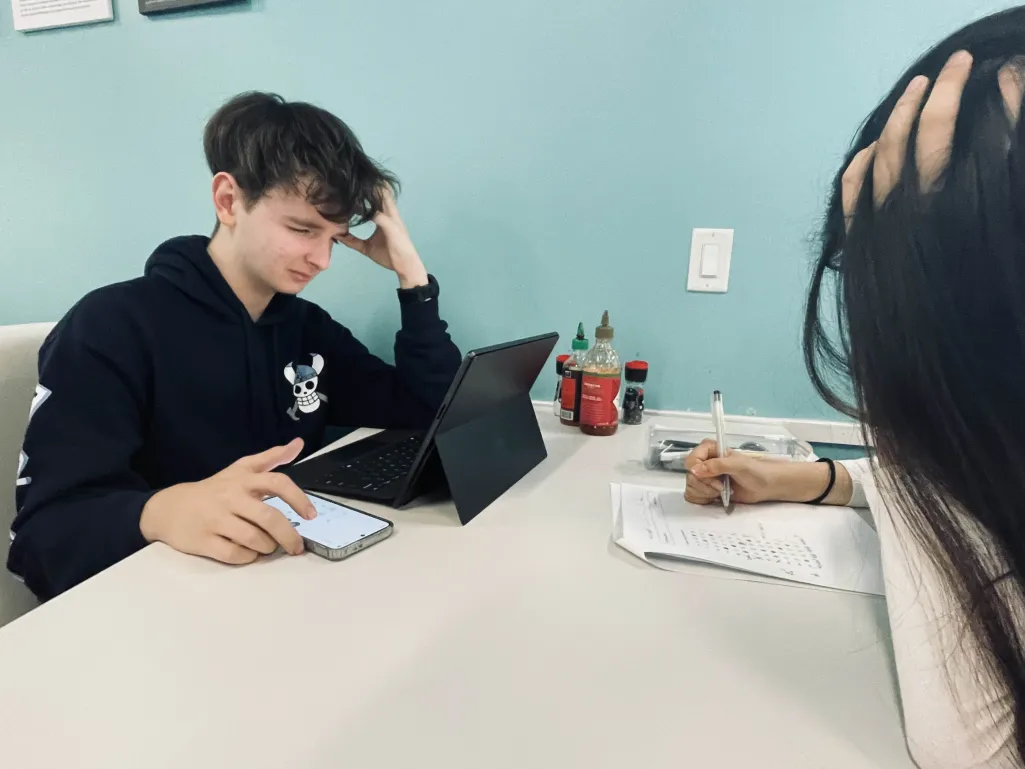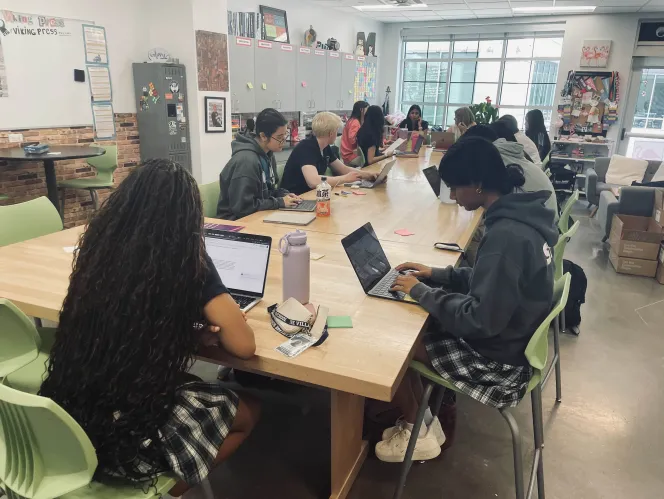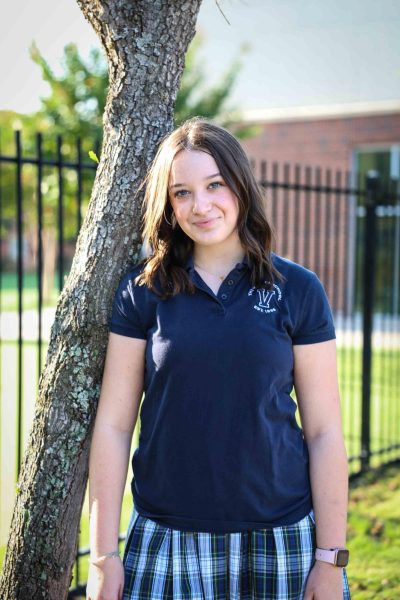The Village School has a remarkable academic program, with APs and IB, as well as the Medical and Entrepreneurship diploma on offer. Along with academics, The Village School has amazing athletics, holding district, state, and national titles, thereby allowing students to receive scholarships and recruitments in a multitude of sports. These are all major selling points for The Village School, but what about the students who are heavily involved in both – as in, students who are doing the IB diploma or medical diploma who get home from a long afternoon of practice and then must complete copious amounts of homework? In other words, what about our student-athletes? The truth is that some teachers don’t take into account that along with academics, students also have other commitments. The leeway and leniency promised during syllabus week aren’t followed through, leaving students overwhelmed and burnt-out.
Especially as seniors, the workload piles on during the first semester. “It’s tough to manage coming home when you’re all tired and sweaty, take a shower, eat, and then do your work, and on top of that, study. Especially as a senior, I have to do IAs and college applications,” said senior Mell Bastos, who not only takes five IB courses but plays for the girls’ soccer team. Between all the IB Classes seniors take and Village’s new offering of APs, school is getting harder, and athletics are following that trend. Soccer practices in particular have extended their practice time to two hours daily, and with the increasing workload, students like Mell find themselves begging for extensions on assignments. “Especially in senior year, I’ve noticed that no matter what I say, or no matter if I have practice, a game or this, or that, teachers are rarely lenient,” said Bastos.”They’re more like, ‘Okay, well, you chose to be in this sport. You have to figure it out.’” This raises the question, shouldn’t a school that prides itself on its high level of academics and extracurricular achievement prioritize student’s abilities to manage both? Some say no.
“Students are deciding to do those extracurricular activities,” said Mr. Morgan, a Math, Current Events, and Philosophy teacher, as well as the kicking and special teams coach for the Viking Football team. “Whenever we talk about student-athletes, what’s the first thing we say? In student-athletes, the ‘athlete’ is an addendum. They are students first, and they are athletes second.” said Morgan. Mr. Morgan is a firm believer that no extra leniency should be given to student-athletes, despite being a teacher and a coach. I disagree.
Though the student part does come first in the word “student-athlete,” student-athletes are still both students and athletes. While it’s true that students choose to do all the extracurriculars that they do, it is also true that these extracurriculars are essential to getting into college. Village prides itself based on the elite colleges its students get accepted into, especially the plethora of acceptances into the University of Texas (UT). However, the Village students who are accepted to prestigious universities fought the battle of juggling multiple IB classes, extracurriculars, and sports. A student could have outstanding grades and not a single missed assignment, but with no extracurriculars, they have no chance of entering into elite universities, including UT. “ If you’re thinking about going to an American college or university, you want to make sure that you have strong extracurricular activities,” said Auna Hearne, a college counselor at The Village School. “They don’t necessarily have to speak to what your major is going to be, it could showcase other skills about you such as: ‘Oh, I can balance my schoolwork and athletics, I have discipline, I have focus, I know how to work with a team or this is a place where I can show leadership. So extracurricular activities are just as important as those grades,’” said Ms. Hearne.
Given the importance of being both a successful student and extracurricular god, more leniency should be offered to student-athletes because, without athletics and other extracurriculars, the choice of college becomes extremely limiting. Student-athletes not only have to work hard in school to keep up their grades so they can have playing time, but also excel at their sport and show up for every practice and game to obtain a leadership position. The workload doesn’t necessarily have to decrease, especially if it’s for an AP or IB course. This year, The Village School has attempted to develop student’s time management skills and mental health balance, with the “Character Strong” curriculum in CAPD class. However, this doesn’t solve the root problem. Teachers should work towards making extensions more accessible, as well as taking student-athletes into account altogether. Student’s rushing an assignment without having the chance to learn benefits no one. It wastes the time of the teacher who must grade low quality work and turns homework into a mindless activity rather than an opportunity to learn for students.
The balance of juggling academics and athletics should not only be a priority for students, but a priority for teachers as well.








